Septoplasty in Tunisia
Search and Compare the Best Clinics and Doctors at the Lowest Prices for Septoplasty in Tunisia
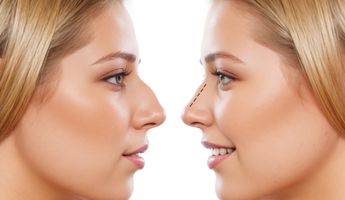
Find the best clinics for Septoplasty in Tunisia
With Medijump you can browse 4 facilities offering Septoplasty procedures in Tunisia. The cheapest price available is $1,120 in Monastir. And for the cheapest price globally, prices start from $404 in Romania.
Septoplasty in Monastir
Price: $ 1,120
Septoplasty in Tunis
Price: $ 1,314
Romania offers the best prices Worldwide
Price: $ 404
From 4 verified reviews
Samir Derradji, 18 March 2018
Hello I follow sick dalger Algeria I ask you a preforma for an opairation on the colon .Thank you
From 11 verified reviews
Craig Mills, 30 July 2019
Excellent private health care looked after my soon after he drowned in sahara beach hotel this month would definatly recommend being cared for there staff were amazing
From 37 verified reviews
Saoussen Saidani, 13 June 2020
My 12 year old daughter Lina has had surgery Pancreas tumorHeavy Operation which went very wellI thank all the staff of the Pasteur clinic for their hospitality and their hygiene ...I thank the doctors who attended the operation and in particular the surgeonAYADI Sofiene who accompanied us from the start for his professionalism as well as DR Walid Miraoui. The discovery of this tumor is done in a very short time a week to manage allThe support of Surgeon Ayadi Sofiene was really perfect as a parent we were reassured and above all in confidence.And especially I thank them for the moral support of My Daughter Lina who kept the smile until the end and who It is found in Total confidenceThank you so much for saving our childMr er Mrs Saidani
Clinique Taoufik, can be found in Boulevard Mohamed Bouazizi, Tunis, Tunisia and offers its patients Septoplasty procedures as well as 225 other procedures, across 24 different procedure categories. At present, there is no pricing information for Septoplasty procedures at Clinique Taoufik. The pricing information is quite specialised, so it's only available on request, and the average price is around ฿43,800. Many medical professionals work at the Clinic, with 10 in total, and Clinique Taoufik is accredited by just one known accreditations institute, ISO 9001:2008
- Home
- Tunisia
Compare Before & After Photos of _procedure_photos.phpSeptoplasty
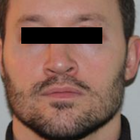
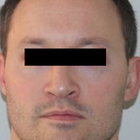
Front view
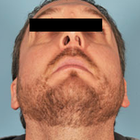
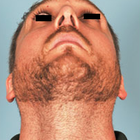
Front view
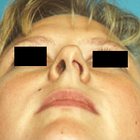
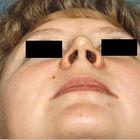
Front view
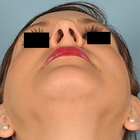
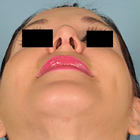
Front view
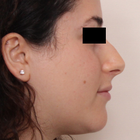
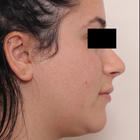
Full-side view
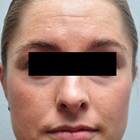
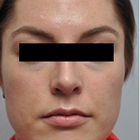
Front view
WHY US?
At Medijump, we're making medical easy. You can search, compare, discuss, and book your medical all in one place. We open the door to the best medical providers worldwide, saving you time and energy along the way, and it's all for FREE, no hidden fees, and no price markups guaranteed. So what are you waiting for?

Free

Best Price

Widest Selection

Risk-Free
What you need to know about Septoplasty in Tunisia
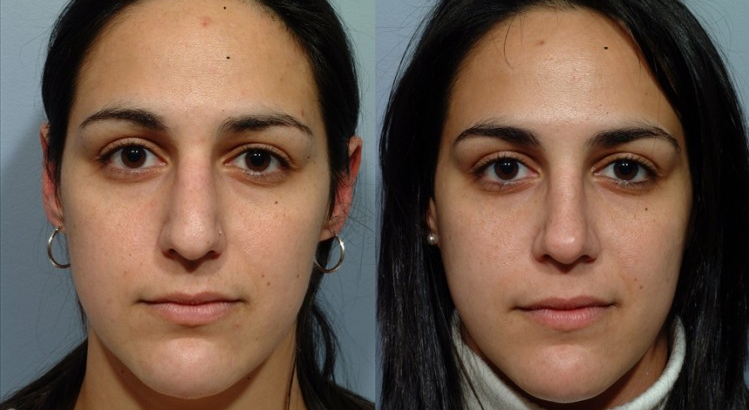
A septum is a bone and cartilage that separates the nasal cavity of the nose. When your nasal septum is off-center, crooked, or moved to one side of your nose, it is a condition known as a deviated septum and can make breathing difficult. To correct this condition, you may need to undergo Septoplasty, where your septum will be straightened to allow better airflow through your nose. This surgery is the only way to fix a deviated septum. However, septoplasty may also be performed to treat long-term sinusitis, remove nasal polyps, or treat other conditions that block the nasal airways. Sometimes, surgeons also recommend this surgery to stop recurrent nosebleeds and facial pains. For conditions other than deviated septum, surgeons often only recommend septoplasty after ruling out other treatments.
What does a Septoplasty Procedure Involve?
A deviated septum is common, but when the condition is severe, it can block one side of your nose and reduce airflow. It can also contribute to crusting or bleeding. If you experience difficulty breathing through your nose that significantly affects your life, you may want to consider septoplasty. Before the surgery, your doctor will review the details of the surgery and ask you to complete some routine tests, such as a blood test, electrical heart tracing, or X-ray. Be sure to tell your doctor if you have any possible allergies. To prepare for the procedure, you may need to stop taking certain medications at least two weeks before the surgery because they can increase your risk of excessive bleeding and the medications include aspirin, ibuprofen, and other blood-thinners.
Septoplasty can be carried out under local anesthesia or general anesthesia. If you have the surgery under local anesthesia, you should not eat or drink anything after midnight the night before the procedure. Not eating and drinking will prevent you from vomiting and choking if the anesthesia nauseates you during surgery. Your surgeon will start the surgery by making an incision on one side of your nose to access the septum. They will then lift the mucosa lining that covers the cartilage and bone. Next, they will reshape the cartilage and bone to move the deviated septum to the correct position. Extra pieces of bone or cartilage that make barriers will be removed. Then, they will reposition the mucous membrane. You may need stitches to hold the septum and membrane in place. Soft silicone splints are sometimes inserted inside the nostrils to support the septum. The whole procedure takes between 30 to 90 minutes to complete.
How Long Should I Stay in Tunisia for a Septoplasty Procedure?
Septoplasty is an outpatient procedure, which means you will likely go home on the same day of the surgery after the anesthesia has worn off unless major complications arise. However, you should stay in the Tunisia for 3-4 days for the initial recovery and follow-up checkups. If your surgeon places splints in the nose, they will be removed within seven days. You may return home when your surgeon allows you as long as there is no complication.
What's the Recovery Time for Septoplasty Procedures in Tunisia?
You may feel drowsy for a few hours following the surgery and you may also feel pain. However, your surgeon will prescribe medication to help with the pain. Some congestion and bleeding can occur after you are discharged from the hospital as your body recovers, but these symptoms should be gone in 2 weeks. The recovery period varies from one person to another. In general, you should be able to return to work within a few days, but you should allow at least three weeks before going back to your full normal routine. You should also limit your physical activities such as exercise for several weeks to minimize swelling and speed up healing because intense physical activities can increase your blood pressure and lead to bleeding.
What sort of Aftercare is Required for Septoplasty Procedures in Tunisia?
Your doctor will give you post-operative care instructions, which you will need to follow, The wound on your nose will heal fairly quickly, and your breathing will improve shortly after the procedure. For a quicker recovery, you may need to elevate your head at night to keep the swelling down, wear a button-up shirt so you do not need to pull clothing over your head, and do not blow your nose for at least two to three days after surgery. Avoid drinking alcohol, smoking tobacco, returning to work too soon, strenuous activities, and being in a crowd where people are smoking or coughing.
What's the Success Rate of Septoplasty Procedures in Tunisia?
The success rate for septoplasty is high, with up to 85% of people experiencing a significant improvement in their nasal blockage after surgery.
However, some people will require a second surgery if they are not satisfied with the results. Septoplasty is a very low-risk procedure, but you should be aware of the possible complications and side effects and these risks can include:
- Bleeding in small amounts is common, but in rare cases, excessive bleeding may occur.
- Infection can occur after septoplasty because the nose is not a sterile environment.
- Toxic shock syndrome is a very rare and life-threatening infection.
- Septal perforation is a small hole that can sometimes develop in the nasal septum during or after the surgery.
- Spinal fluid leak and it is extremely rare.
Other risks such as scarring, and altered nose shape, discoloration of the nose, a decreased sense of smell, tooth or nose numbness, and continuing symptoms are also possible. Other than following your surgeon’s aftercare instructions, keeping the nose clean and washing your hands often can reduce the risks.
Are there Alternatives to Septoplasty Procedures in Tunisia?
Although most conditions of a deviated septum can only be treated by septoplasty, there are nonsurgical treatments for other nasal blockages to help you breathe better. If your nasal blockage is caused by an allergy, you may take antihistamines from your doctor or over-the-counter. In cases of bacterial infection, your doctor can prescribe antibiotics to help clear the nasal airways.
Whilst the information presented here has been accurately sourced and verified by a medical professional for its accuracy, it is still advised to consult with your doctor before pursuing a medical treatment at one of the listed medical providers
No Time?
Tell us what you're looking for and we'll reachout to the top clinics all at once
Enquire Now

Popular Procedures in Tunisia
Prices Start From $1,945

Prices Start From $101

Prices Start From $192

Prices Start From $500

Recommended Medical Centers in Tunisia for Septoplasty

- Interpreter services
- Translation service
- Religious facilities
- Medical records transfer
- Medical travel insurance
- Health insurance coordination
- TV in the room
- Safe in the room
- Phone in the room
- Private rooms for patients available

- Interpreter services
- Translation service
- Religious facilities
- Medical records transfer
- Medical travel insurance
- Health insurance coordination
- TV in the room
- Safe in the room
- Phone in the room
- Private rooms for patients available

- Interpreter services
- Translation service
- Religious facilities
- Medical records transfer
- Medical travel insurance
- Health insurance coordination
- TV in the room
- Safe in the room
- Phone in the room
- Private rooms for patients available

- Interpreter services
- Translation service
- Religious facilities
- Medical records transfer
- Medical travel insurance
- Health insurance coordination
- TV in the room
- Safe in the room
- Phone in the room
- Private rooms for patients available

- Interpreter services
- Translation service
- Religious facilities
- Medical records transfer
- Medical travel insurance
- Health insurance coordination
- TV in the room
- Safe in the room
- Phone in the room
- Private rooms for patients available

- Interpreter services
- Translation service
- Religious facilities
- Medical records transfer
- Medical travel insurance
- Health insurance coordination
- TV in the room
- Safe in the room
- Phone in the room
- Private rooms for patients available

- Interpreter services
- Translation service
- Religious facilities
- Medical records transfer
- Medical travel insurance
- Health insurance coordination
- TV in the room
- Safe in the room
- Phone in the room
- Private rooms for patients available
Septoplasty in and around Tunisia
About Tunisia
Tunisia is one of the few countries which can cater to everyone and it manages to combine climate, golden beaches, history, and shopping for an “all-around” experience. It has a high standard of healthcare and an excellent reputation for cosmetic surgery. Cosmetic and plastic surgeons are regulated by the Tunisian Ministry of Health and the private clinics have state-of-the-art equipment and English-speaking staff. Tunisia welcomes an ever-increasing number of medical tourists each year, many of whom travel for Septoplasty procedures. Medical Tourists travel from all across the globe, particularly from Europe and neighboring African countries with an inferior healthcare system. Popular medical tourism destinations outside of the capital, Tunis, include Sousse and Mahdia
Popular Parts of Tunisia
- Tunis, the country’s capital, is overflowing with a history that dates from the 4th Century BC. The city is divided into two parts, the old city known as the medina and the new city (or Ville nouvelle in French). Many tourists visit Tunis to see the Archaeological Site of Carthage which is also a UNESCO World Heritage Site. The beautiful Islamic architecture in medina also attracts many tourists to the city.
- Tozeur is known as a home to an enchanting desert oasis, which was a place to rest and refuel for caravans crossing the Sahara. Another main attraction in the city is the medina, where tourists can find lines of beautiful brick-patterned traditional dessert houses. Chott el Djerid, Sahara’s largest salt pan, is a popular day-trip destination.
- Sousse is located on the coast of the Mediterranean Sea. It offers good beaches with a clear blue sea. The city has been fought over by the Romans, Arabs, and Europeans, giving it a colorful history and culture. Sousse Archeological Museum is one of the most visited sites in the country; it has the second largest collection of mosaics in the world.
- Hammamet is the country’s original tourism resort. The city has beautiful gardens filled with oranges, lemons, and other citrus plants. It also has wonderful sandy beaches with crystal clear water. Just like any other city in Tunisia, this city is also brimming with interesting histories. Sites such as The Gafsa Museum and Bardo Museum will give insights about the Islamic faith and culture.
- Douz, also known as “the gateway to the Sahara.” Tourists who want to experience the Sahara Desert come to this city. Take a camel trip or a 4-wheel-drive into the Sahara or see the Museum of the Sahara that has an interesting collection portraying traditional Saharan life.
Weather and Climate in Tunisia
The North of Tunisia has a subtropical Mediterranean climate with mild rainy winters and hot summers. The South and inland areas have a tropical desert climate.
The weather is relatively comfortable throughout the year. Summer starts in June and lasts until August. The average temperature is between 28 °C to 32 °C with July and August being the hottest months. The heat is not as bad on the coast because of the seaside breeze. Be aware that July to September is the jellyfish season.
The heat decreases in autumn and the weather is somewhat more comfortable. There are occasional rain showers in September. The temperature in October can be like summer during day time, but cold at night. October has more rain than September. The season lasts for three months from September to November with an average temperature of around 19 °C to 29 °C.
The weather in winter can be uncertain. The average temperature is between 16 °C and 18 °C, but it can drop to 7 °C at night and below 0 °C in highlands and deserts and a clear sky is rare during this season.
Spring comes in March and the temperature can rise to 20 °C. Mornings and nights are cold; there is still a high probability of rains and thunderstorms at the end of this season.
Getting Around in Tunisia
Tunisia has several international airports. The main airport is Tunic-Carthage International Airport. It has international connections with major European countries and the Middle East. The airport is the hub for Tunisair, Tunisair Express, and Nouvelair. Other airports that have international flights are Enfidha-Hammamet, Monastir Habib Bourguiba, Djerba-Zarzis, and Tabarka-Aïn Draham.
Taxis and buses are available to get to the city center from Tunis Airport. The SNT bus line departs every 30 minutes from the airport, the ticket costs less than 1 TND. There is also the TUT bus which departs every 15 minutes and is more luxurious and expensive.
Airport taxis are available at the airport taxi stand and are usually metered. Always make sure that the driver turns the meter on before riding the taxis. A journey to the city should cost around 5 TND. An extra cost will be added if you have baggage.
Getting around in Tunisia can be done by several transportation modes. Tunisair Express provides domestic flights between Tunis, Tozeur, Djerba, and Gabes. The Train is also available and the national train company in the country is SNCFT that runs modern and comfortable trains from Tunis to Sousse, Sfax, and Monastir. There are three classes of service that tourists can choose. The fare from Tunis to Sousse is between 6 to 10 TND. The long-distance bus is an economical option to travel between big cities such as Tunis, Hammamet, and Nabeul. The buses usually depart every 30 minutes.
Tourist Visas in Tunisia
Citizens of 97 countries (including Australia, China Singapore, the United States, and Russia) can visit and stay in Tunisia for up to 90 days without a visa. Other nationalities are advised to check with their local Tunisia embassy. Tunisia provides an online visa application for nationalities that needs a visa to enter. The eVisa will simplify the process of obtaining travel authorization to enter the country.
Additional Information
-
Local Currency: the local currency is the Tunisian dinar (TND). 1 USD converts to 2.61 TND.
-
Money & Payments: ATMs can be found in most cities and in all tourist areas. Many ATMs have withdrawal limits of 400 TND. Credit cards (MasterCard and Visa) are accepted in major cities and tourist areas. They can be used for shops, car hire, or top-end accommodation. Always make sure to carry cash if you want to travel outside major cities. Tipping is not necessary but will be appreciated.
-
Local Language: Arabic is the official language of Tunisia. French is very common due to the country’s former status as a French protectorate. English is still very limited except in the tourist areas and expensive hotels.
-
Local Culture and Religion: Islam is the major religion with 98% of the population identified as Muslim. There is a small group of Christian and Jews. Since most of the population is Muslim, always remember that the dress code is important in Tunisia.
-
Public Holidays: Tunisia celebrates major Islam holidays. The country hosts several annual festivals throughout the year such as The International Festival of the Sahara, Yasmine Hammamet Festival, and the International Festival of Carthage.
Popular Searches
- Plastic Surgery in Thailand
- Dental Implants in Thailand
- Hair Transplant in Thailand
- Breast Augmentation Thailand
- Gastric Sleeve in Thailand
- Gender Reassignment Surgery in Thailand
- Laser Hair Removal in Bangkok
- Botox in Bangkok
- Dermatology in Bangkok
- Breast Augmentation in Bangkok
- Coolsculpting in Bangkok
- Veneers in Turkey
- Hair Transplant in Turkey
- Rhinoplasty in Turkey
- Stem Cell Therapy in Mexico
- Rhinoplasty in Mexico
- Liposuction in Mexico
- Coolsculpting in Tijuana
- Rhinoplasty in Korea
- Scar Removal in Korea
- Gastric Sleeve in Turkey
- Bone Marrow Transplant in India
- Invisalign in Malaysia
- Plastic Surgery in the Dominican Republic
- Tummy Tuck in the Dominican Republic
- Plastic and Cosmetic Surgery in Poland
- Rhinoplasty in Poland
- Hair Implant in Poland
- Dental Implants in Poland
- IVF in Turkey



